Ruth Wambua Nthenya has been named the Best PhD Student in the Class of 2025 at the United States International University–Africa (USIU-Africa).
Her journey from answering phones to becoming Kenya’s Best PhD Student in Cybersecurity and Systems Engineering is a testament to the relentless pursuit of excellence and a motivation to those who aim to achieve their full potential.
Early Career at Safaricom
Ruth Nthenya Wambua began her professional journey at Safaricom Limited in April 2008, where she developed a deep understanding of how everyday users interact with technology.
Between April 2008 and August 2009, she worked as a retail and customer experience agent.
In this role, Wambua was at the frontline of digital service delivery, handling troubleshooting and direct customer support.
Academic Background
Wambua pursued higher education at the University of Nairobi, earning a Bachelor of Science in Computer Science from 2003 to 2007.
She later completed a Master of Science in Computer Science between 2011 and 2013, with a focus on advanced computing, software development, and systems management.
Her studies gave her the technical foundation to engage deeply with information systems while preparing her for leadership roles in the technology sector.
During this time, she also began working in university ICT environments, gaining experience as a systems developer and project lead.
Doctoral Research and Focus
Building on her academic and professional experience, Wambua enrolled for a PhD in Information Systems and Technology at USIU-Africa.
Her research examined how digital transformation can enhance access to essential services, with a particular focus on digital health.
Her studies examined the barriers preventing equitable adoption of digital health solutions, including gaps in digital literacy, infrastructure availability, affordability, and policy alignment.
She produced systematic reviews and applied studies that offered practical frameworks for deploying digital systems in low-resource environments.
Among her notable works are publications on:
- Digital Health and Universal Health Coverage Equity in Kenya (2025).
- Digital Innovation in Higher Education Institutions in Developing Countries (2022).
- Models for Equitable Access to Digital Health Tools (2024).
These publications, all peer-reviewed, demonstrate her commitment to utilizing technology to enhance public welfare while addressing the distinct challenges faced by marginalized communities.
Recognition and Achievement
In 2025, Ruth Wambua celebrated the completion of her doctoral studies.
On her LinkedIn profile, she announced that she had been recognized as the Best PhD Student of the Class of 2025.
Ruth Wambua’s Research
Ruth Wambua’s doctoral research at United States International University–Africa (USIU-Africa) centers on digital transformation, with a strong focus on digital health systems and equitable access to services.
Her work is built on the understanding that while technology has the potential to revolutionize healthcare and education, it often leaves behind communities with limited access to infrastructure, skills, or financial resources.
Focus on Digital Health and Equity
Wambua’s most recent studies examine how digital health tools, such as telemedicine platforms, mobile health applications, and online health records, can be implemented to support universal health coverage (UHC).
Also Read: Meet Former ECK Commissioner Who Has Lived with One Kidney for 35 Years
She identifies the barriers that hinder effective adoption, including:
- Digital literacy gaps among healthcare workers and patients.
- Infrastructure challenges, such as poor connectivity and unreliable electricity.
- Affordability issues prevent vulnerable populations from accessing necessary devices or services.
- Policy misalignments between government strategies and implementation on the ground.
Her 2025 paper, “Moderating Effect of Demographic Factors on the Relationship Between Digital Health and Universal Health Coverage Equity in Kenya,” explores how age, gender, income, and location influence the success of digital health initiatives.
Digital Innovation in Higher Education
Beyond healthcare, Wambua has also contributed to research on digital innovation in higher education institutions.
In her 2022 paper, “A Systematic Review of Digital Innovation in Higher Education Institutions in Developing Countries,” she reviewed strategies used by universities to integrate technology into teaching, administration, and research.
Also Read: From Chicken and Egg Seller to Millionaire: Meet Mbukinya Bus Owner
Her findings highlighted the following:
- Many institutions adopt technology without adequate planning, leading to fragmented systems.
- Capacity-building for staff and students is often overlooked, resulting in underutilization of available tools.
- Sustainable funding models are critical for long-term success.
Follow our WhatsApp Channel and X Account for real-time news updates.
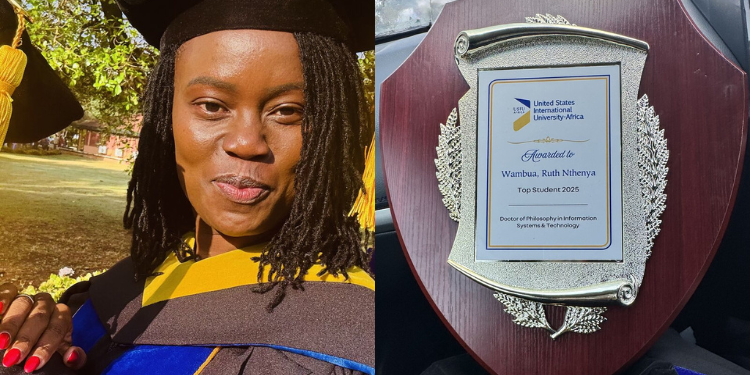
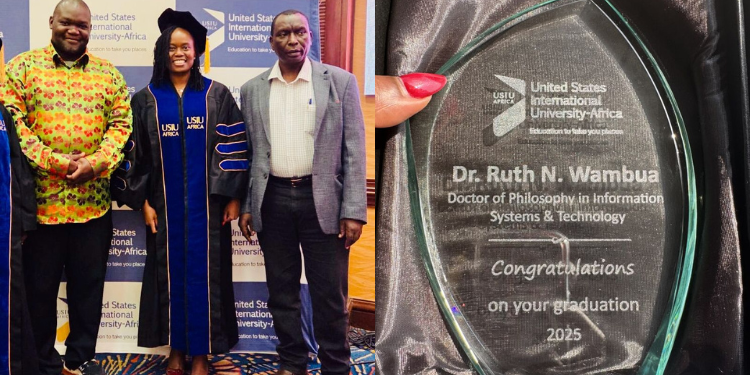

















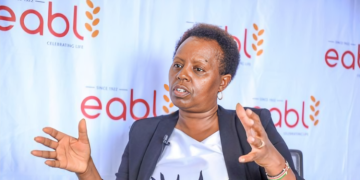




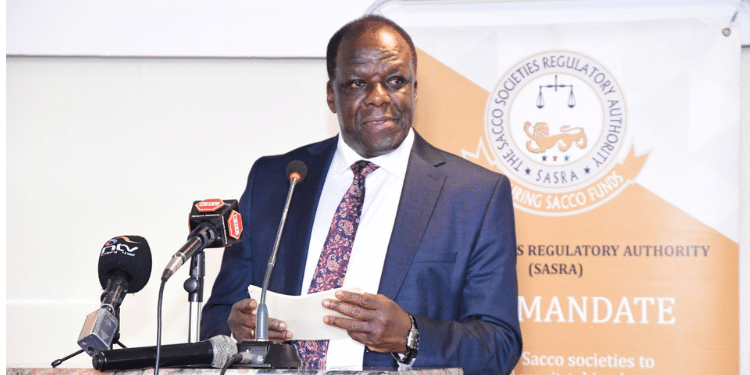































![Senator Allan Chesang And Chanelle Kittony Wed In A Colourful Ceremony [Photos] Trans Nzoia Senator Allan Chesang With Channelle Kittony/Oscar Sudi]( https://thekenyatimescdn-ese7d3e7ghdnbfa9.z01.azurefd.net/prodimages/uploads/2025/11/Trans-Nzoia-Senator-Allan-Chesang-with-Channelle-KittonyOscar-Sudi-360x180.png)
















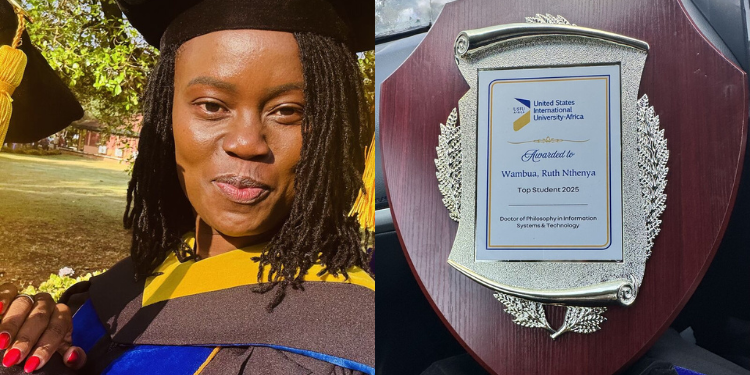
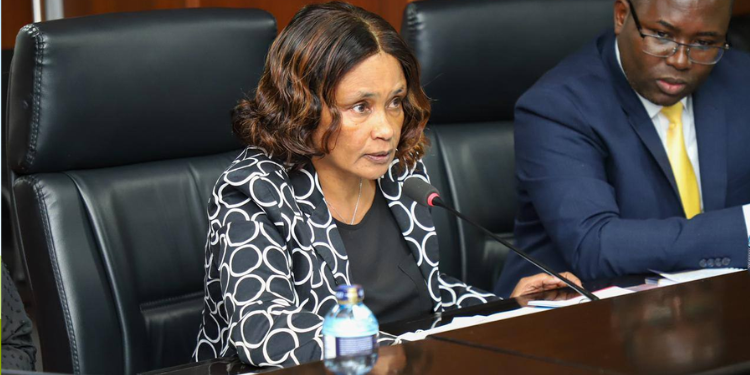



Congratulations Ruth. I’m so proud of you. Your resilience since high school is amazing. Glory to God. Congratulations sana
BIG CONGRSTULATIONS RUTH WAMBUA FOR THIS GREAT MILESTONE. YOU MAKE US PROUD. ITS NOT EASY BUT YOU HAVE DONE IT. ONCE MORE CONGRATULATIONS TO YOU. THE SKY IS THE LIMIT FOR YOU.
Big congratulations Nthenya. You have made is proud of you.